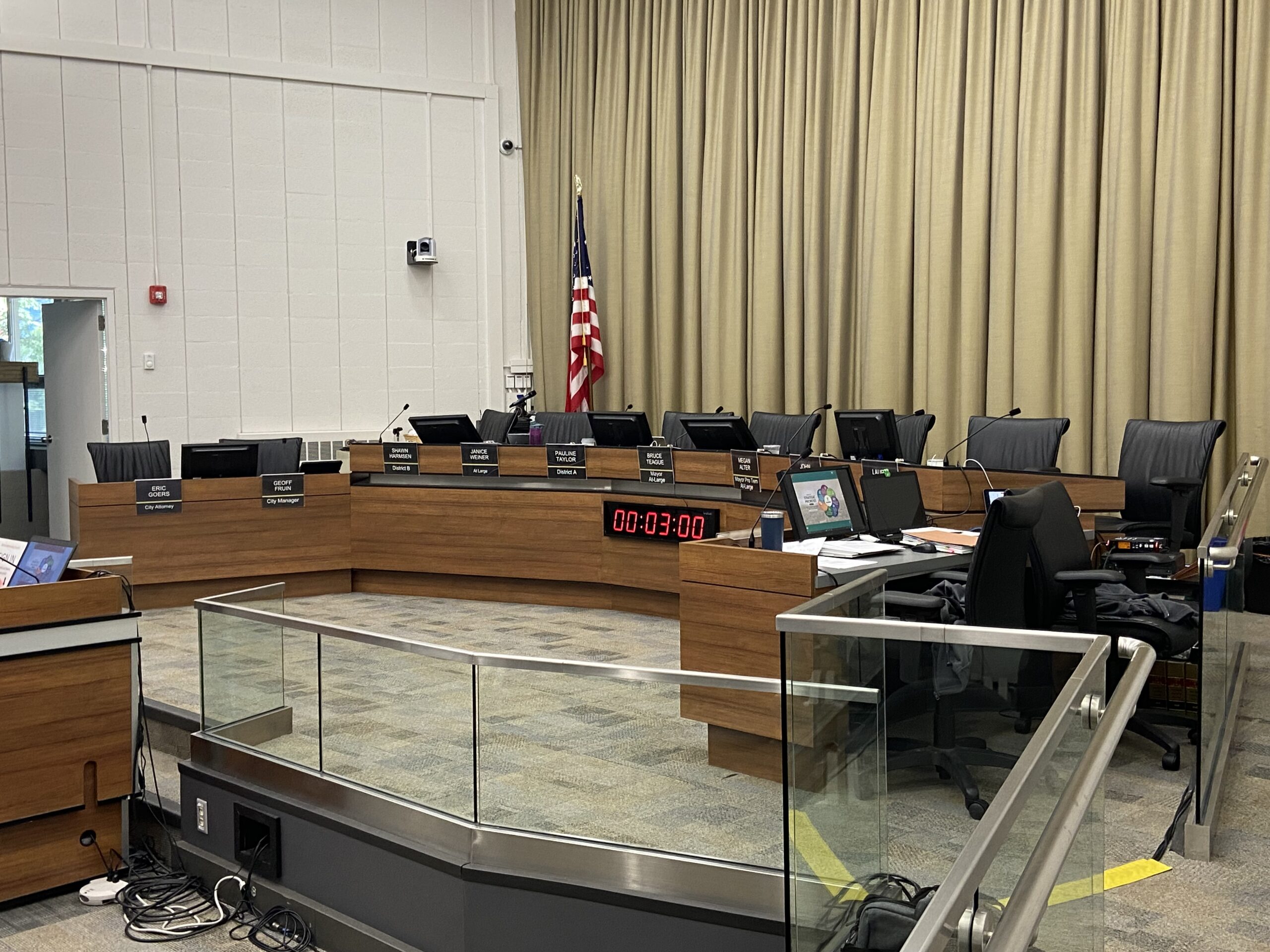Iowa City Council unanimously supported a resolution Aug. 16 to fund the remaining 319 excluded workers that did not receive a $1,400 check through the Direct Payment Assistance Program. Council’s decision will increase Iowa City’s contribution by approximately $455,000. About $3.2 million of the budgeted $3.5 million funds have now been spent between Johnson County […]
Iowa City Council unanimously supported a resolution Aug. 16 to fund the remaining 319 excluded workers that did not receive a $1,400 check through the Direct Payment Assistance Program.
Council's decision will increase Iowa City's contribution by approximately $455,000. About $3.2 million of the budgeted $3.5 million funds have now been spent between Johnson County and Iowa City. The city of Coralville has contributed $30,000 to the program.
"At this juncture, we should support it 100%," said Mayor Bruce Teague.
The program, funded mainly by Johnson County and Iowa City, gave checks to 1,919 low-income residents affected by COVID-19 through impacts such as housing or food insecurity. The goal of the program was to help Johnson County residents excluded from other COVID-19 payments using $3.5 million in funds via a lottery system.
However, due to complexity in the subrecipient agreement, Johnson County paid for 67% of Iowa City residents and did not have money to send checks to the 319 residents from Coralville and North Liberty, while Iowa City only paid for about 25% of the program's cost before Tuesday.
Before agreeing to pay for the remaining excluded workers, Iowa City would have been refunded $750,000 of their $1.5 million commitment.
"This is a victory for community organizing," said Ninoska Campos, an excluded worker living in Modern Manor mobile home park, in a statement following the work session. "We applaud and thank Iowa City and Johnson County for modeling good government that puts people and the common good first."
Ms. Campos is a leading member of Escucha Mi Voz, an organizing group dedicated to helping all workers — many of which live in mobile home parks just outside city limits — receive $1,400 checks important in paying for everyday essentials like food and housing. Escucha Mi Voz had been organizing over this issue for more than a year.
"It was very disheartening to hear 319 workers would not get funds," said Ms. Taylor during the work session. "All persons who should have qualified for funding should receive it. These are some of the most vulnerable members of our community."
The decision to backfill Iowa City residents paid by Johnson County ends a prolonged process of political back-and-forth between the Johnson County Board of Supervisors and city council, with neither side agreeing to the scope of responsibility each governmental body should bear in funding the remaining workers. Some supervisors were in favor in helping fund the remaining 319 workers, but a majority of the board opted to not contribute more funds.
During the
supervisors' meeting Aug. 10, the board rejected Iowa City's request for both the city and county to split 50% of the cost of the remaining 319 applicants, at a cost of $224,000.
"Johnson County did what we said we were going to do," said Supervisor Pat Heiden. "I cannot support additional allocation to this program, particularly because I am not willing to select and defund previously approved ARPA projects."
City council members disagreed with this sentiment but decided there was no more time to waste in sending checks to the excluded workers.
"There are a lot of lessons that can be learned from this," said Mr. Teague at the formal meeting. "The funds we are spending are [from] the city of Iowa City residents fund. We are going to do it because at this point we know the needs. But I still open the invitation to the county to backfill us and any jurisdiction that wants to be part of this process. Our involvement is pretty significant."
